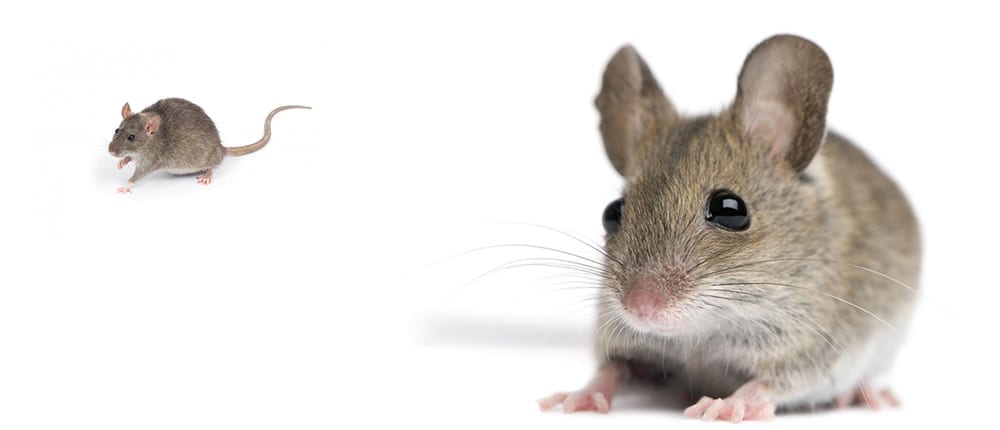Pest Control For Mice In Alice Springs
Here at Red Centre Pest Control we are committed to not only providing a high level of rodent pest control services, but for that service to be delivered in the safest possible way.
The house mouse is remarkably well-adapted for living year-round in homes, food establishments and other structures. Homeowners are especially likely to notice mice during winter, following their autumn migration indoors in search of warmth, food and shelter. Once mice become established inside a home, they can be extremely difficult to control.
REASONS TO CONTROL MICE
Although most people consider mice less objectionable than rats, mice are more common in Alice Springs and cause significantly more damage. Mice are prolific breeders, producing 6-10 litters continuously throughout the year. The greatest economic loss from mice is not due to how much they eat, but what must be thrown out because of damage or contamination.
Food, clothing, furniture, books and many other household items are contaminated by their droppings and urine, or damaged by their gnawing. House mice gnaw through electrical wiring, causing fires and failure of freezers, clothes dryers and other appliances. Mice also can transmit diseases, most notably salmonellosis (bacterial food poisoning) when food is contaminated with infected rodent faeces.
MOUSE BEHAVIOUR
Mice are nocturnal creatures, and, therefore, are rarely seen by the homeowner. The most obvious indicators of their presence are droppings (1 cm long, dark and pointed at both ends), sounds of them running, gnawing or squeaking, or damage to stored food or materials used for nesting.
Compared to rats, mice forage only short distances from their nest — usually not more than 3-10mtrs. When food and shelter are adequate, their foraging range may be only a few metres Mice prefer to travel adjacent to walls and other edges. Mice are very inquisitive and will investigate each new object placed in their foraging territory.
Mice feed on a wide variety of foods but prefer seeds and cereal grains. They also are fond of foods high in fat and protein such as nuts, bacon, butter and sweets. Mice are “nibblers” and may make 20-30 visits to different food sites each night.
TACTICS FOR CONTROL
To control mice, you must “think like a mouse,” keeping in mind the behavioral traits noted above. The best way to control mice is to prevent their entry. Mice are able to squeeze through extremely small openings narrower than the diameter of a 10 cent piece. Cracks in the foundation should be sealed, as should gaps and openings under doors and where utility pipes enter the structure.
Good sanitation and food storage practices are helpful in reducing problems with house mice. Since seeds are a preferred food, all vegetable gardens adjacent to the building should likewise be eliminated. However, because mice are able to occupy such small nesting areas and survive on minute amounts of food, sanitation alone will not normally eliminate an existing infestation.
CONTROL USING RODENTICIDES
Nearly all baits are formulated exclusively as food-based baits containing seeds or grain as an attractant. Most rodenticides are anticoagulants containing brodifacoum, bromadiolone chlorophacinone, diphacinone or warfarin as active ingredients.
They kill by interfering with normal clotting of the rodents’ blood, causing the animal to die from internal bleeding. Since mice forage only short distances from their nests, optimum results are achieved with multiple bait placements as close to the mouse harborage as possible.
We take extreme care when positioning baits in areas inaccessible to children or pets. Dogs, in particular, will seek out and find baits placed in areas which are accessible. This is why we will nearly always place the baits securely in the roof void when possible. In the event your home does not have a roof space we place the baits in areas that are not accessible to children or pets. When this is not possible we place them in tamper proof containers which are only accessible by mice.
The mice will nearly always nibble on the bait and will then feel a desperate need for water. As the nearest water is in Adelaide, the mice will generally leave the house immediately. This of course goes a long way to reducing the chance of them dying in the home and thus giving off that unpleasant odour. This often happens when supermarket brand baits are used due to the low amount of poison in the bait.
We have attempted to inform you honestly about these baits as they are the only treatment that we do that is considered a health risk to children and pets. We take every precaution when placing these baits in your home and will always spend the time to explain the ups and downs of this type of treatment as your family always comes first.
If you would like to know more or would like to talk to us, please call us on 08-8953-5562.

